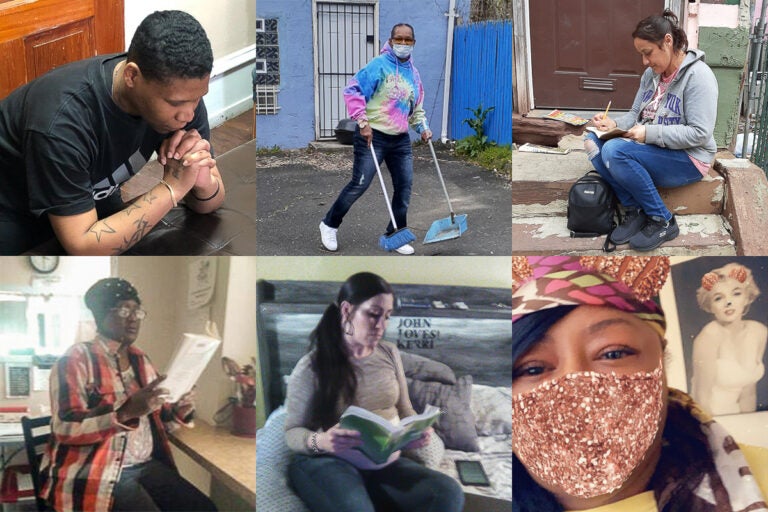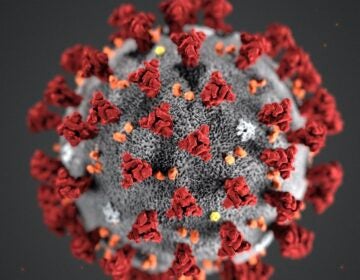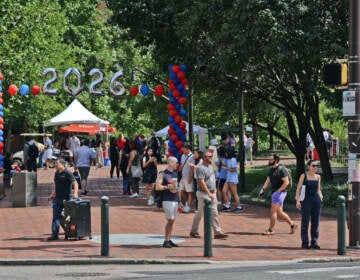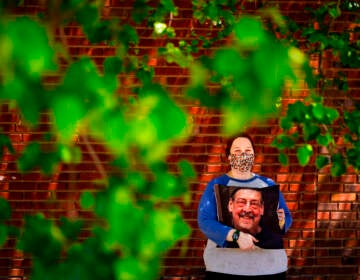Lessons from prison for dealing with scarcity and loneliness
Fellows at the People’s Paper Co-op in Philadelphia, a collective that helps advocate for incarcerated women, are writing tips to fight isolation blues.
Listen 3:01
Formerly incarcerated women are sharing their strategies for surviving the isolation and confinement of the COVID-19 epidemic (clockwise from top left) Aesha, Faith Bartley, Kitty, Latyra, Kerri, and Lisa. (Photos provided)
Are you on the front lines of the coronavirus? Help us report on the pandemic.
Due with her first child in the first week of June, Kerri DiLeo doesn’t know whether she’ll have a baby shower and worries about giving birth in a hospital that might be overwhelmed with COVID-19 patients.
But DiLeo is keeping a positive attitude. She said she was more stressed out during her eight months in prison in 2018 when she couldn’t regularly interact with her family – something she’s doing every day during the pandemic.
“Even though this time is stressful, I’m just dealing with it the best way I can because I can’t change either situation, you know? I’m about to be a mom and I can’t change what’s going on in the world today,” she said.
Currently a fellow at the People’s Paper Co-op in Philadelphia — a collective that helps advocate for incarcerated women through art and other work — DiLeo is trying to help others who might be feeling particularly isolated during this time.
The current fellows, including DiLeo, have penned a series of short advice columns on how to cope during isolation and a time of scarcity. It’s a way they can help others, DiLeo said, but it’s also a way to keep their minds busy.
A recent visit to the grocery store left DiLeo wanting to offer advice to those who might be panicking at the sight of empty grocery store shelves. While waiting in the parking lot, she saw people hoarding toilet paper and selling it for a profit.
It reminded her of prison.
“When you’re locked up, it’s really hard to get many things, but toilet paper is one of the hardest,” she wrote in her advice column. “We only have one roll to split between two people, and that has to last for one week!”
DiLeo said crisis can bring out the worst in people but she recommends looking for the helpers – a little hustle also helps.
While incarcerated, DiLeo often traded snacks, coffee and cigarettes for hygiene products. If she was in a bind, she’d ask someone for help. It’s a tactic that could come handy in a pandemic.
“Contact a friend, neighbor, or family member and ask if they have any of the items you’re looking for and offer to pay, trade, or gift,” she said.
Still, maintaining a social distance can take an emotional toll, said Faith Bartley, lead fellow at PPC.
“While in prison, I was not allowed to hug, kiss, give handshakes, or high fives,” she wrote. “This was very difficult for me because those are the things that make me feel human, and not like an animal locked in a cage where no one gets to touch or cuddle me in their arms.”
Like DiLeo, Bartley got creative. She said she would draw hearts in the air “really big and wide, letting them know that I love them,” and hug herself when passing her peers in the yard, chow hall, or church services.
“When you see your friends or neighbors from across the street, from your third-floor apartment, what can you do to let them know you see them?” wrote Bartley.
For Lisa Shorter, food can become a love language, even if it’s just pantry scraps.
Shorter together with other women in prison would make chi chi — a ramen casserole filled with cheese twists, sausage, vegetables like peas or corn, or any other leftovers saved from the “skimpy meals” they were served.
“Chi chi is not just a creative casserole,” Short wrote. “Chi chi is comfort. Chi chi is magic. It connects us to home even when we can’t be there. Chi chi carried me back to my past, to my mom and my siblings where I felt love.”
Shorter said the meals filled their stomachs and souls.
“Some of us weren’t able to talk with family, or didn’t have anyone to reach out to, and making these meals helped us feel like normal human beings,” Shorter wrote, encouraging people to get creative with their pantry.
Latyra Blake, another PCC fellow, said she and friends have been cooking for each other while keeping social distance guidelines.
Listening to gospel music and messaging family also helps Blake.
Though it’s frustrating that the pandemic is keeping Blake in the city after she recently gained permission from her probation officer to leave whenever she wants, Blake tells people this too shall pass.
“Although I still struggle all the time, I believe my life (and yours!) will go back to how I like it to be,” she wrote. “Know that you are not alone going through this, we’re here, we’re together.”
The women say isolation can take a person’s passion, self-esteem, and self-worth, but only if you let it.
WHYY is your source for fact-based, in-depth journalism and information. As a nonprofit organization, we rely on financial support from readers like you. Please give today.




![CoronavirusPandemic_1024x512[1]](https://whyy.org/wp-content/uploads/2020/03/CoronavirusPandemic_1024x5121-300x150.jpg)



